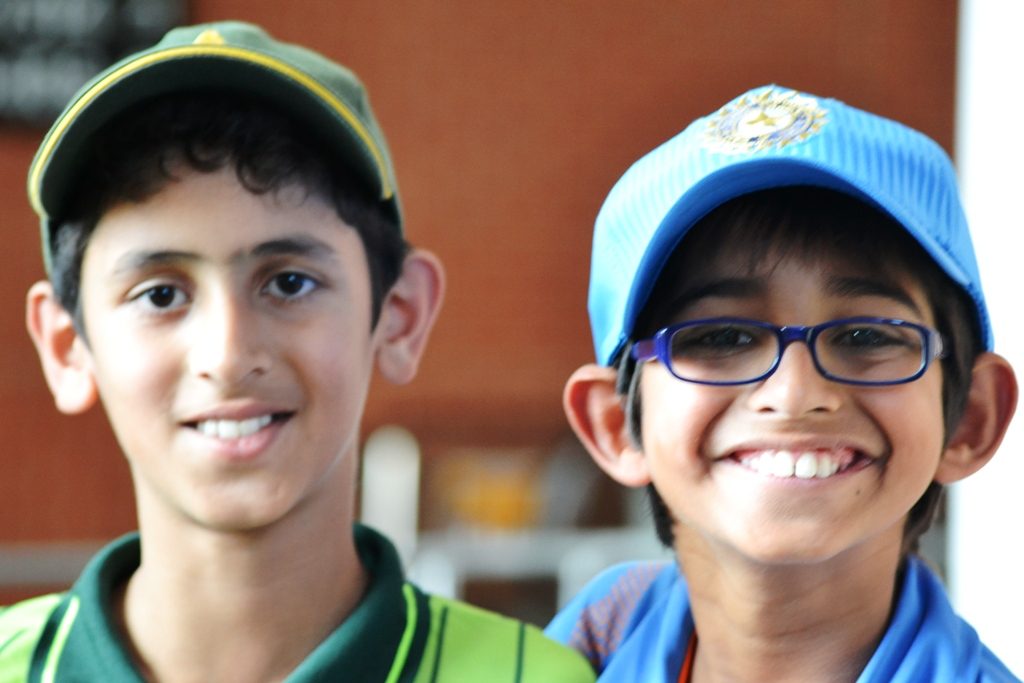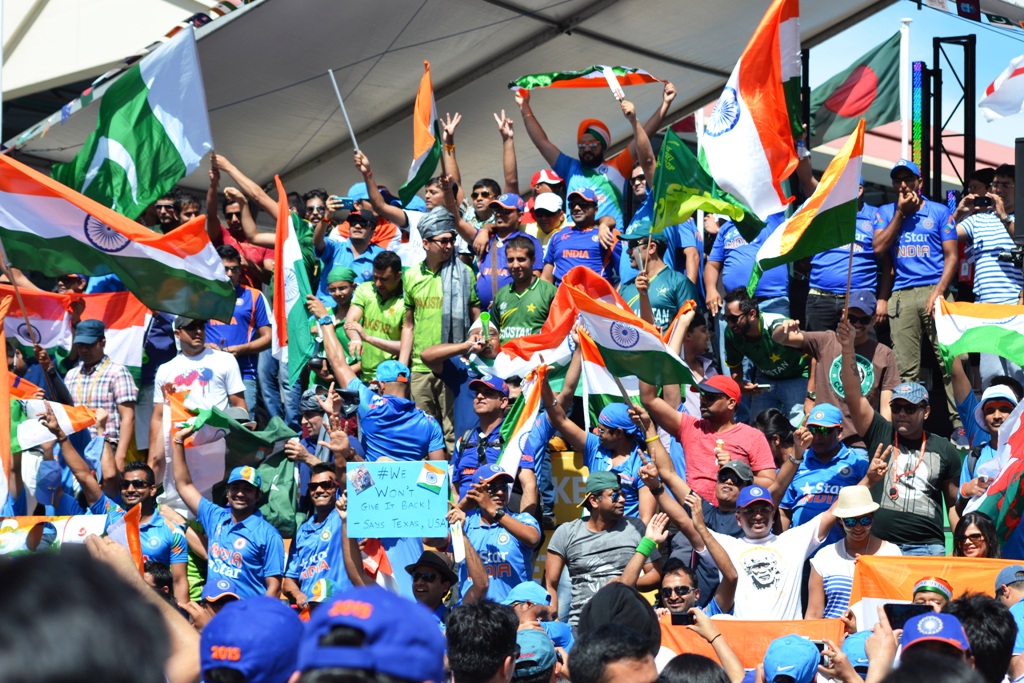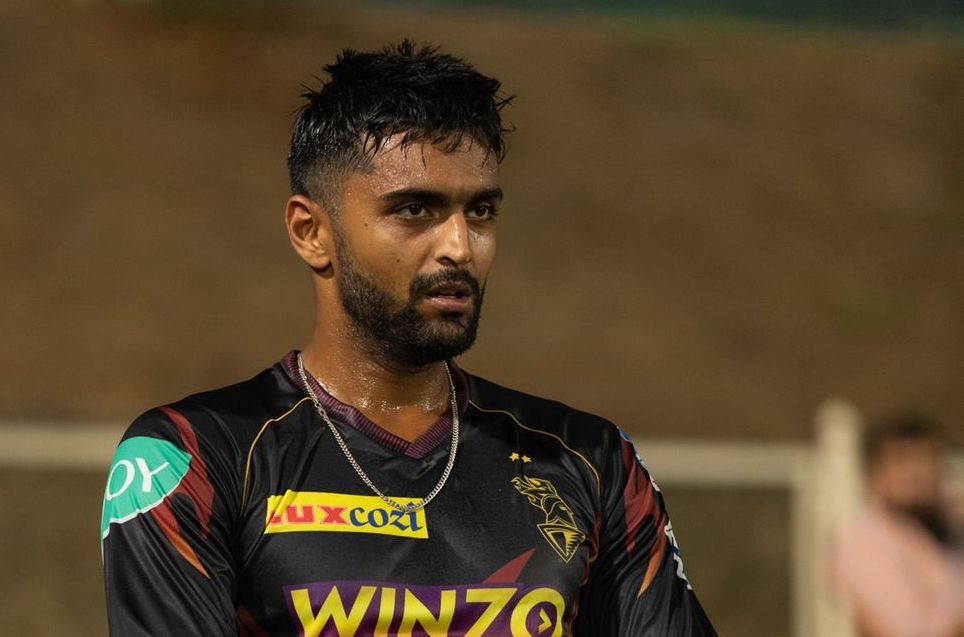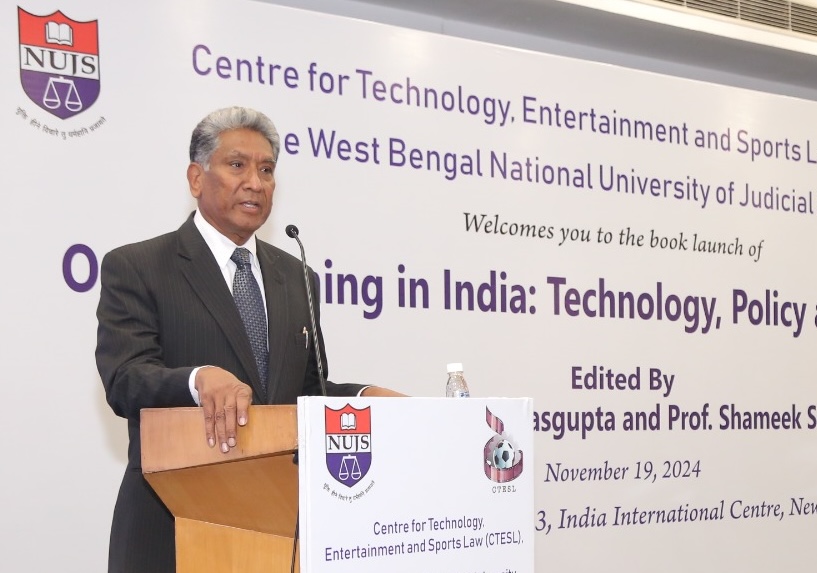What can bring large parts of two nations, with shared history, divided over time and at loggerheads politically ever since, to a standstill in peace-time? Indeed, an India-Pakistan contest in the ICC Cricket World Cup. No matter where it is contested, the match keeps fans on either side of the Radcliffe Line, on the edge of their seats – or on their toes, if you please.

Of course, there are many memories of India-Pakistan cricket, including Test matches in both nations, ODIs in a lot of venues, including Sharjah, and T20Is, including the first two in the ICC World Twenty20 2007 in South Africa. But, given that the World Cup comes only in four years, it would be appropriate to sift them and focus on the matches under the Big Tent.
The most emotional of them all, personally speaking, was played in 1996. Of course, India had won in Sydney in March 1992 but the contest in 1996 was played in Bangalore where the atmosphere was electrifying. Everyone recalls the spat between Pakistan captain Aamir Sohail and Indian swing bowler Venkatesh Prasad but there was more in that match than just that.
With Wasim Akram pulling out of the game, Waqar Younis was Pakistan’s lead bowler and Ajay Jadeja waded into him in the final three overs, India scoring 41 runs. The other strong memory I have of that match is Javed Miandad’s slow walk back to the pavilion after being run out. It was almost as if his shoes were weighed down with lead.
Three years later, England got its first insight into the nature of fans from the sub-continent and those who traced their roots back to South Asia as Mohammed Azharuddin’s team won a tight game at Old Trafford in Manchester. Azharuddin himself launched a late attack to give the Indians a good total to defend and Venkatesh Prasad responded with a five-wicket burst.
From our seats in the press box, we could only sense a hint of trouble between the fans of the two teams, especially second- and third-generation members of immigrant families but we learnt much later that some uncouth fans burnt the Indian flag after the match and were hauled up the law officers.
When India beat Pakistan in Centurion in the 2003 World Cup, Rahul Banerji, my colleague from the now defunct website espnstar.com, and I were pulled to the terrace of our East Delhi apartment to watch fireworks light up the night sky. It was a vertiable Deepavali in March, the pyrotechnics doing justice to the strokeplay of a certain Sachin Tendulkar.
The 2011 semifinal in Mohali saw the bowlers scrap hard to win for India – and this after Sachin Tendulkar was dropped quite a few times when top-scoring with 85 while Pakistani paceman Wahab Riaz claimed five. Dhoni’s wisdom in choosing left-arm paceman Ashish Nehra over R Ashwin won him praise for his assured captaincy.
It seems like it was yesterday that the ultra-rich and the poor were bound by a common thread that spelt victory. A vast, diverse nation was united by emotions like relief and satisfaction, delight and national pride. India’s peoples’ collective desire to encourage success, came through tellingly when India beat Pakistan for the fifth time in a World Cup.
There was one frame that etched itself on my mind and I have to thank Shahid Afridi and Zaheer Khan – and their smiles – for that. Afridi chipped Zaheer Khan to mid-wicket and the ball dropped just short of the fielder there and he managed just a single. As Afridi completed the run, they both broke into a smile.
Despite the unprecedented hype that preceded the game, there was not a hint of acrimony on the field that some expected in the high-voltage clash. This was highlighted when Ashish Nehra did not claim a catch after flinging himself forward at deep mid-wicket. And skipper Shahid Afridi showed grace when he unhesitatingly said: “I want to say sorry to the people of Pakistan.”
I remember being in the studios of All India Radio and as I drove back home after, it seemed that flag-waving fans, young and old, were at India Gate and Connaught Place, showcasing an outpouring of emotion that had started as soon as the cricket ball found safety in Virat Kohli’s hands to signal the completion of the match.
Four years later, Kohli’s century reflected the team’s intensity in the high-voltage game. Walking in at the fall of Rohit Sharma’s wicket, Kohli seemed eager to get into the attacking mode but embraced a stunningly anchoring approach. Once the new cricket balls had lost their zing, he played a smart knock in keeping with the demands of World Cup’s emotionally trickiest game.
Kohli led the way with a mature hundred, his 22nd in ODI cricket. He shared contrasting century stands with Shikhar Dhawan and Suresh Raina as India made 300 for seven to help India extend its run of victories over Pakistan to six in World Cup matches, India captain Mahendra Singh Dhoni could draw pride from the fact that each of his team-mates pulled his weight.
Dhoni called the win at the wonderful Adelaide Oval a nearly complete game. For, it was a night on which the team’s sensibly professional approach helped India comprehensively outplay Pakistan by 86 runs to spark its campaign in World Cup 2015.
Mohammed Shami led the bowling effort with a four-wicket haul, including scalping veteran Younis Khan with a bouncer, while Umesh Yadav returned from a none-too-happy opening spell to claim two wickets in three deliveries and spark Pakistan’s slide from 102 for two to 103 for five in the span of eight deliveries.
Mohit Sharma was miserly when he came on to bowl as early as in the seventh over while off-spinner R Ashwin played the stifling role and picked up Haris Sohail’s wicket after he had a 68-run second wicket stand with Ahmed Shehzad. Ravindra Jajdeja was not to be left behind as he claimed Umar Akmal’s wicket, thanks to DRS confirming Dhoni’s claim of a catch.
It was not the only Dhoni decision that worked that day. He backed Dhawan to come good on the big occasion despite his lack of form; he also promoted Suresh Raina to bat at No. 4 because he believed the situation – 163 for two in the 30th over – was more suited to the left-hander than Ajinkya Rahane. Both men rewarded him with half-centuries.
It let Dhoni speak about the belief players have in one another, despite the results on the tour of Australia not being the sort that the team would have liked. “It is job of a leader and the management group to ensure that the morale is high,” Dhoni said. On the evidence of a mentally draining game, Dhoni has done well to ensure that India came out all guns blazing.
So, what lies in store this Sunday?



